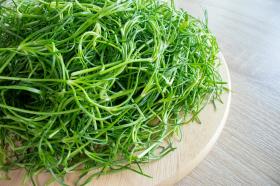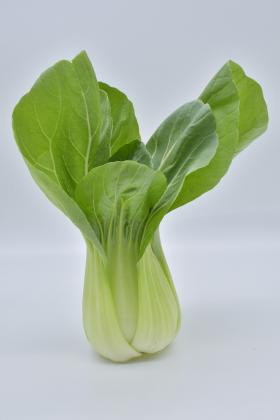
KIDS SEED FUN PACK, regular seeds - not treated and non-gmo
Gardening is a practical and interactive way of learning. By planting and taking care of plants themselves, children gain hands-on experience with the plant life cycle while learning about biology, ecology, and nature as a whole in a fun and engaging way1) CUCUMBER - BETH ALPHA 0.5g
A cucumber with an excellent taste, smooth skin, juicy, and fragrant. It does not sting or turn bitter. Give children the opportunity to discover their gardening talents and enjoy delicious and fresh cucumbers, which will become the pride of their garden and a new taste experience.
2) CARROT - RONDO 2000pcs
A fast-growing, small, and round carrot. Children not only love eating them but also enjoy playing with them. By growing these carrots, kids can experience the wonderful process of plant growth and feel the joy of harvesting their own vegetables. Comes on a 2-meter seed tape.
Advantages of seed tape: higher yield, richer harvest, and better quality.
3) COSMOS FLOWERS 2g
Give children the joy of taking care of flowers by growing abundantly and beautifully blooming cosmos. They can be grown in flower beds or pots. The harvested flowers do not wither quickly, allowing little florists to experiment with their creativity when making bouquets.
4) MIX OF COLORED RADISHES 2000pcs
A mix of especially tasty and colorful radish varieties, like a rainbow, on a seed tape. They grow quickly, and sowing with a seed tape is extremely easy, even for the smallest fingers. Children will enjoy watching these radishes grow rapidly and be surprised by their different colors. Comes on a 2-meter seed tape.
Mix composition in the package:
- Radish CHERRY BELLE 25% (0.5 m)
- Radish VIOLA 25% (0.5 m)
- Radish WHITNEY 25% (0.5 m)
- Radish ZLATA 25% (0.5 m)
1) CUCUMBER - BETH ALPHA 0.5g
A cucumber with an excellent taste, smooth skin, juicy, and fragrant. It does not sting or turn bitter. Give children the opportunity to discover their gardening talents and enjoy delicious and fresh cucumbers, which will become the pride of their garden and a new taste experience.
2) CARROT - RONDO 2000pcs
A fast-growing, small, and round carrot. Children not only love eating them but also enjoy playing with them. By growing these carrots, kids can experience the wonderful process of plant growth and feel the joy of harvesting their own vegetables. Comes on a 2-meter seed tape.
Advantages of seed tape: higher yield, richer harvest, and better quality.
3) COSMOS FLOWERS 2g
Give children the joy of taking care of flowers by growing abundantly and beautifully blooming cosmos. They can be grown in flower beds or pots. The harvested flowers do not wither quickly, allowing little florists to experiment with their creativity when making bouquets.
4) MIX OF COLORED RADISHES 2000pcs
A mix of especially tasty and colorful radish varieties, like a rainbow, on a seed tape. They grow quickly, and sowing with a seed tape is extremely easy, even for the smallest fingers. Children will enjoy watching these radishes grow rapidly and be surprised by their different colors. Comes on a 2-meter seed tape.
Mix composition in the package:
- Radish CHERRY BELLE 25% (0.5 m)
- Radish VIOLA 25% (0.5 m)
- Radish WHITNEY 25% (0.5 m)
- Radish ZLATA 25% (0.5 m)
Watching plants grow helps them understand the importance of sunlight, water, and nutrients, while also introducing them to the ecosystem of insects and other garden creatures. Such hands-on learning deepens children’s knowledge and fosters a love for nature and a desire to maintain a sustainable environment.
A plant is a living organism that requires constant care and attention. While caring for plants, children clearly see what happens if a delicate seedling is not watered on a hot day. This helps develop a sense of responsibility and precision, teaching them time management skills. They learn that regular watering, weeding, and maintenance have a huge impact on plant growth and the future harvest. Gardening also nurtures patience. Children learn to wait for their plants to grow and celebrate their fruits or flowers. More broadly, responsibility and patience are essential life skills—superpowers that are valuable in all areas of life.
Gardening promotes physical activity and outdoor play. While preparing garden beds, planting, and taking care of plants, children spend time in fresh air, engage in active movement, and develop motor skills. Moreover, "their own" plants provide fresh, homegrown food!
"I have taken such good care of this plant—why wouldn’t I eat it now?" Gardening encourages children to consume more fruits and vegetables. By understanding where food comes from and being involved in the growing process, they develop healthier eating habits that will stay with them for life.
Packet 4100 seeds







